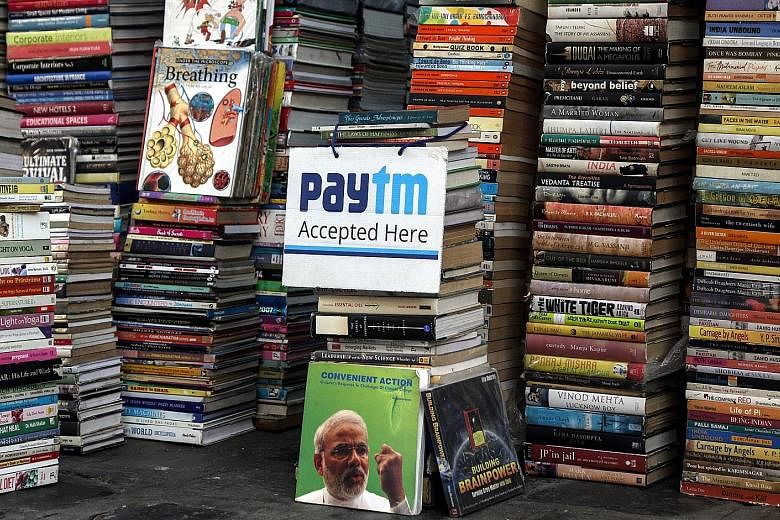The Indian government has announced a lucky draw with 3.4 billion rupees (S$72 million) worth of prizes to lure Indians into making digital payments, one of a flurry of incentives being offered in a country where cash is still king.
Cash in the world's fastest-growing economy has been in short supply since Prime Minister Narendra Modi banned 500- and 1,000-rupee notes on Nov 8.
The move aims to bring billions of rupees of unaccounted-for cash back into the mainstream economy, and hit the finances of militants that use fake high-denomination notes to fund operations.
As a result, 86 per cent of all cash has been taken out of circulation, boosting the importance of digital payments. Indian consumers - most of whom distrust online payments or do not have access to them - are now faced with a flurry of online payment options.
Starting from Dec 25, the government will give away prizes worth 1,000 to 10 million rupees to merchants and consumers who choose methods such as RuPay, an Indian payment platform similar to a Visa card, or the Unified Payment Interface, a government-backed mobile phone payment system. Debit and credit cards are not included in the lucky draw. Credit cards are unpopular in India, with only about 25 million in use.
"Our focus is on the poor, middle class and merchants, whom we want to encourage using digital payments," said Mr Amitabh Kant, CEO of NITI Aayog, a government think-tank, when he announced the lucky draw. The government said the lucky draw and other digital payment subsidies, such as a 10 per cent discount for online purchase of insurance policies, aim to push India towards a "less cash society". But critics argue that going digital remains a challenge in a country where cash is used in some 95 per cent of personal purchases.
"Given the poor infrastructure in poorer areas and rural areas, talk of a digital and cashless society is a very far cry from reality. And given the poverty and illiteracy levels, it is very unlikely people will move to these platforms," said economics professor Arun Kumar.
Still banks and digital wallet companies are advertising cash- back rewards and other benefits to get people to switch to digital transactions. In full-page newspaper ads yesterday, the Bank of India urged its customers to "Go cashless Go digital", while e-commerce firm Paytm is offering cashback incentives and more.


